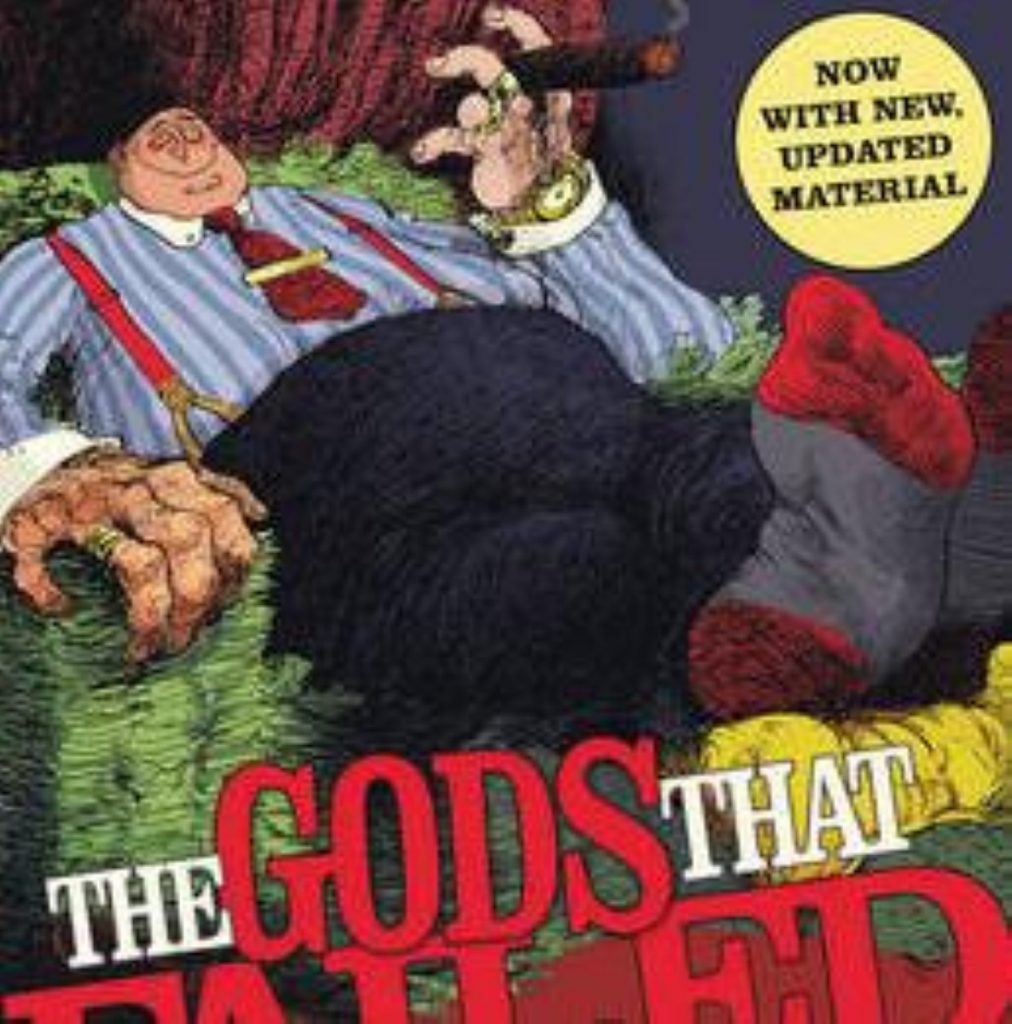Review: The Gods That Failed
The Gods That Failed: How the Financial Elite Have Gambled Away Our Futures – Larry Elliott and Dan Atkinson
Vintage
Review by Daniel Barnes
Two madmen came down from the mountain and announced god was dead.


When alone, however, they said to their hearts: “Could it be possible! This old saint in the forest hath not yet heard of it, that god is dead!”
Which god, or rather, gods? The Olympian gods that have sat at the heads of central and investment banks around the world, controlling the passage of billions of dollars and assuming the invisible hand of the market always got things right in the end.
Larry Elliott and Dan Atkinson’s investigation aims to explain the source of the credit crisis, from the streams that flowed after the Second World War to the (perfect) storm-raged oceans of 2009.
The Gods That Failed was originally published in 2008, before the three weeks of September and October that changed the world. Lehman Brothers collapsed, the tightened strings of capital around the world were cut cut, banks demanded rescuing and economies ground to a halt.
The new edition comes with a new chapter, which should perhaps be entitled ‘We Told You So’.
Certainly, Elliot and Atkinson predicted the UK economy was about to have “a very nasty reality check”, as manufacturing was worn away and the UK bumbled on surviving by borrowing more to get by and living off cheap Asian imports.
Behind the polemic against a system that firmly believed the market knows best, details of the incompetence, the ignorance, the complicity, the complacency and the criminality that ate through the world and caused the crisis and global recession are revealed.
Who is to blame? In no order: Greenspan, Brown, Thatcher, Clinton, Bush. Well it seems everyone, according to Elliott & Atkinson, had a role in creating a system of excess freedom where wages and wealth at the top of the pyramid grew, and consumption grew and debt grew, but really the masses were not that much better off.
In particular they explain the UK house price bubble – and now collapse:
“Thus the economy depends to a large extent upon consumer spending, which in turn depends on consumer borrowing.
“This borrowing is underpinned by high house prices, which allow homeowners to raise finance against part of their property’s value that is unencumbered by a mortgage.
“Obviously this slice of the value grows with the growth of house prices generally, which in turn depends on high levels of mortgage borrowing.
“So one type of borrowing essential to economic growth, ultimately depends on another type of borrowing, mortgages raised for house purchase.”
The Gods that Failed also takes a keen eye to the securitisation of subprime mortgages and fully explains why the toxicity in the markets is there and how it spread. And strangely, as complaints raged that the slicing and dicing of loan books were too complex for regulators, investors or even bank chiefs to understand, the authors reveal they were not that complex.
It is a tale of banks aiming to remove risk from their books and turn ash into gold. Risk was spread but – as we now clearly see – it did not disappear.
“The circularity of the whole business is rather like a fabled perpetual motion machine of yesteryear. Rising asset prices support increased borrowing which supports economic growth and rising asset prices.
“Everything runs smoothly as long as we keep on borrowing ever more money… To keep people buying at ever higher prices requires even lower interest rates.”
They add that while the economy seemed to be running well, in truth it was like the bus hanging over the edge of a cliff at the end of the Italian Job.
“By Christmas 2007, the coach was starting, alarmingly, to sway.” Now the bus is firmly in the valley and the gold is scattered about for the mafia to pick up and discover it is not such good quality.
The explanations of what led to the crisis over the last 15 years are clear. Perhaps less so are the long term roots the authors aim to explain.
As an exposé, Gods that Failed is damning. It is also a great read – if a little at times preaching to the converted. Quotes from Inspector Morse to Shakespeare pepper the book to add some light relief to what can be dry finance.
The overarching warning is too much freedom and faith was put in the hands of the gods. Hubris ruled, and the belief that heads of companies would always look after the long-term prospects of firms and not be blinded by the rhetoric of being untouchable was flawed.
The financial crisis and the resultant depression will inspire many historians and books to come out explaining why we were wrong. Last week’s Turner Report sets out clearly why the pyramid collapsed, but it is not quite as interesting a read as Elliott and Atkinson
The full story will be along time coming, but Elliott and Atkinson capture the moment as the iceberg hit perfectly and show why the radar systems were turned off and the watchmen asleep.












